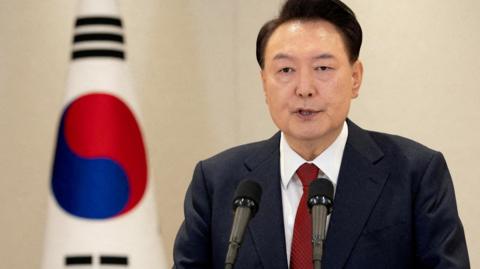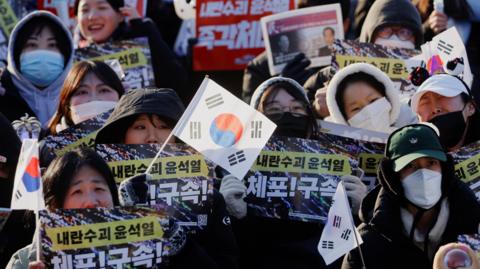South Korea's impeachment process means Yoon has been suspended from his duties while a constitutional court decides whether to confirm his impeachment. If it does, he will be permanently removed from office.
His decision to declare military rule - which he claimed at the time was to counter "anti-state forces" in parliament - has been seen by some as an attempt to break a political stalemate since the opposition won a landslide in April.
After his late-night speech announcing the decree, opposition MPs and protesters converged on the National Assembly, but were met by police and military personnel barricading the building.
When MPs were able to force entry, prosecutors say Yoon told the chief of the capital defence command, Lee Jin-woo, that military forces could shoot if necessary to enter the National Assembly.
"Tell (your troops) to go to the voting chamber, four for each (lawmaker) and carry them out," Yoon is alleged to have told Gen Lee.
"What are you doing? Break down the doors and drag them out."
After MPs voted to lift martial law, Yoon told General Lee to "keep going" as he could declare martial law multiple times, the indictment says.
Prosecutors say the indictment draws evidence from former defence minister Kim Yong-hyun, who was also indicted on Friday for allegedly telling Gen Lee to follow Yoon's orders multiple times on 3 December.
He also allegedly ordered commanders to seize the National Elections Commission building and arrest its employees, using cable ties, eye masks, ropes, baseball bats and hammers which had been prepared by the military.
Kim will stay in detention while awaiting his trial, the investigators said in a press release.

